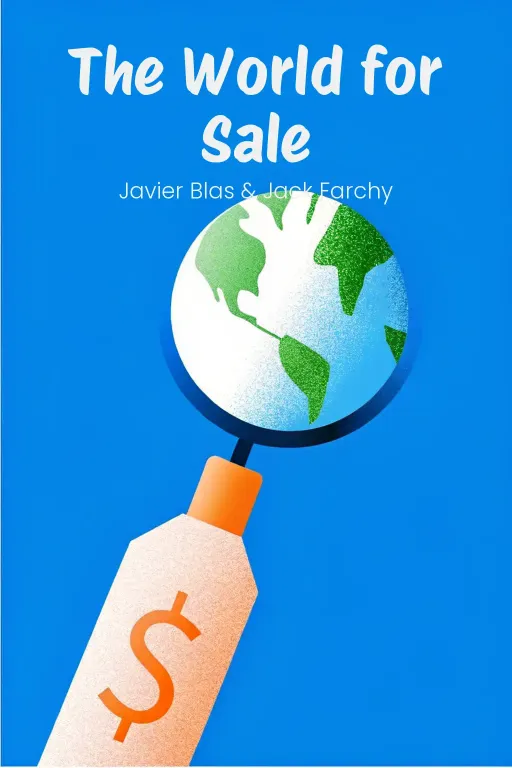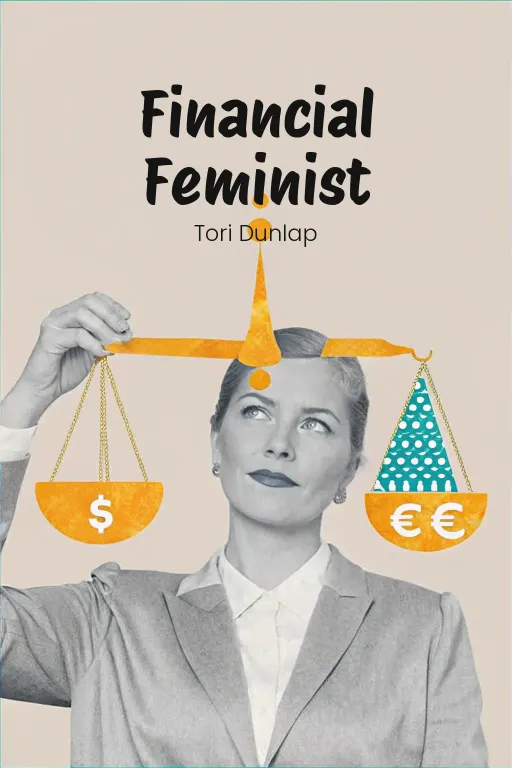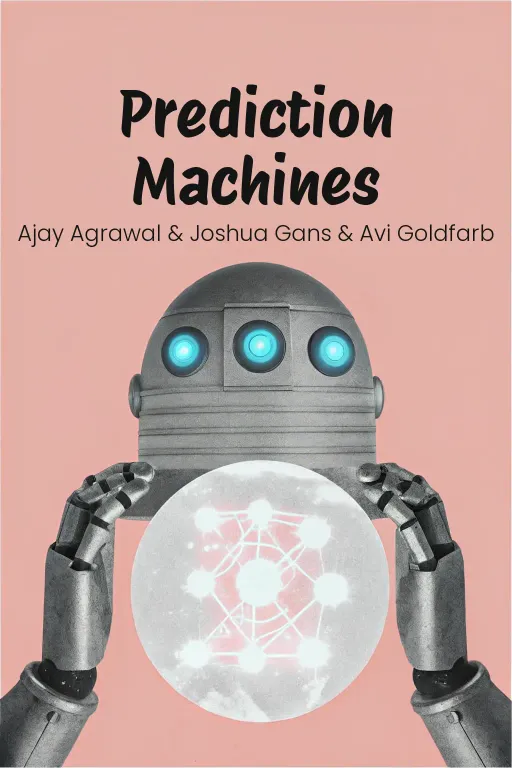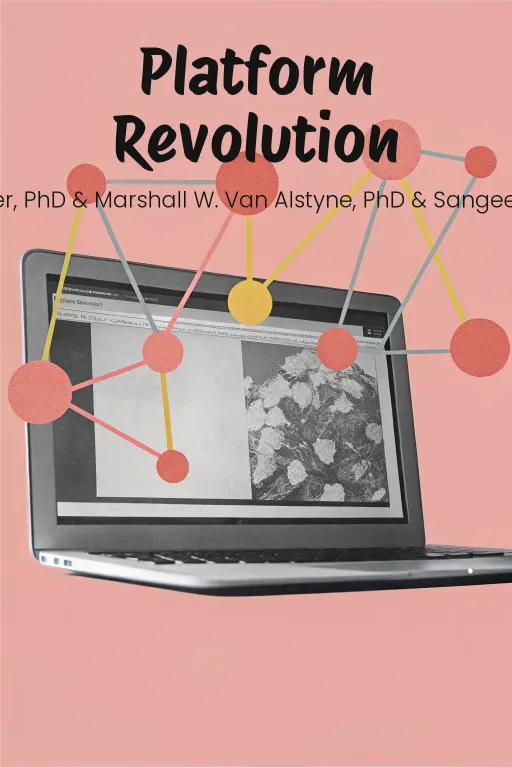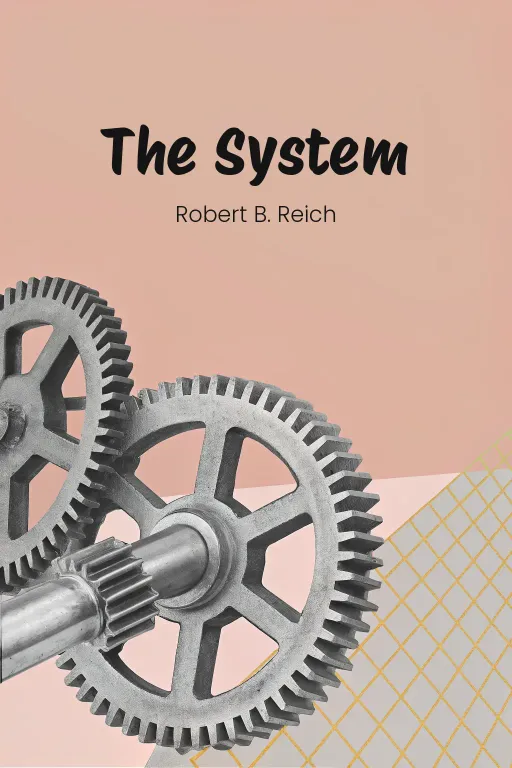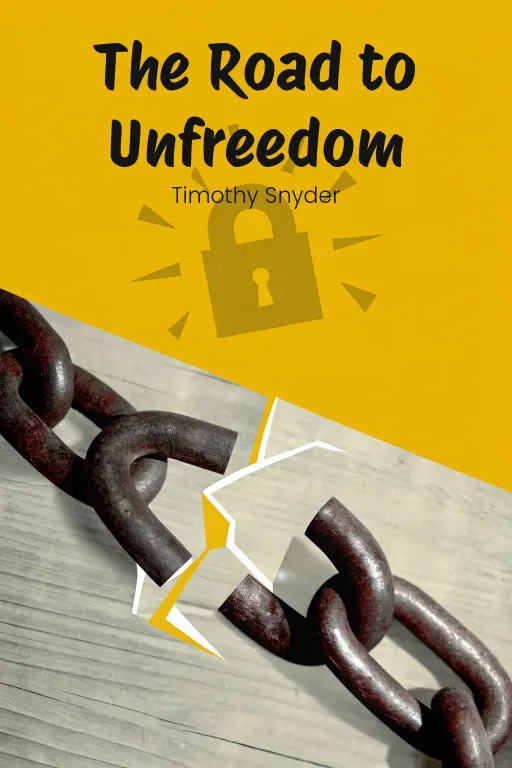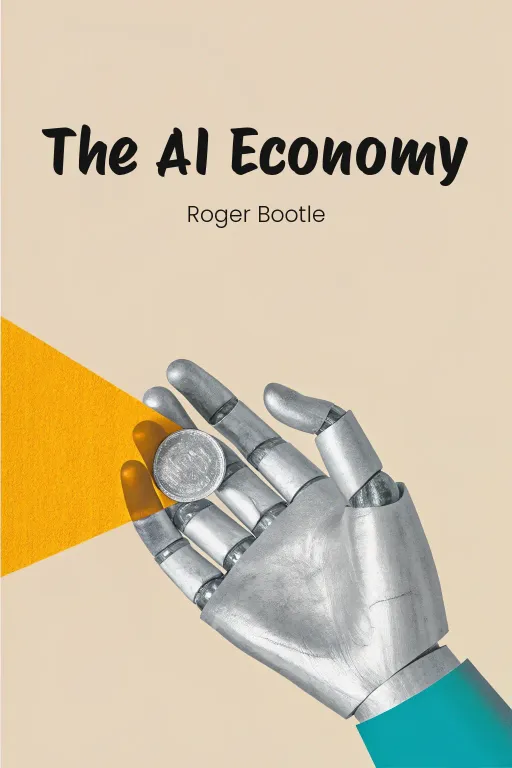
Stories That Move Markets
Podcast by Let's Talk Money with Sophia and Daniel
How Stories Go Viral and Drive Major Economic Events
Introduction
Part 1
Daniel: Hey everyone, welcome! Today we're diving into something truly fascinating – an idea that could totally shift how you see the economy. Forget the usual data and charts for a minute. What if I told you the economy is driven by stories, not just statistics? Sophia: Stories driving the economy? Okay, Daniel, are we about to analyze fairy tales, or you're saying Bitcoin's success is as much about a captivating story as it is about blockchain tech? Daniel: Precisely! We’re talking about Robert Shiller’s “Narrative Economics”. He basically says that compelling stories – you know, those ideas that grab our emotions and spread like wildfire – they can shape everything, from financial markets to government policies. Sophia: So, it's not just about supply and demand curves. It's about rumors and shared beliefs actually fueling global trends. Interesting. What's on the agenda for today’s episode? Daniel: We're going to unpack three key things: First, how narratives act like viruses, sparking market booms – like the whole GameStop frenzy or the crypto explosion. Second, how major events, like the Great Depression, were influenced by the narratives swirling around them. And third, we'll explore modern-day stories about automation and crypto and how they're changing our perspective on the future economy. Sophia: So, viral stories, a history lesson, and a peek at future headlines. Sounds like a compelling narrative in itself! So where do we start?
The Power of Narratives in Economics
Part 2
Daniel: So, let's dive into why narratives are so powerful in economics. Shiller argues that stories give people a way to grasp complex ideas, they really cut through the technical stuff and uncertainty. Think about it, narratives simplify things, clarify them, and most importantly, they connect with us emotionally. They feel relatable in a way that just pure data can't. Sophia: Exactly, Daniel. If you just throw out there that “interest rates went up 0.25%,” people's eyes just glaze over. But if you say, “Hey, inflation is eating away at your paycheck,” suddenly, everyone's paying attention. It resonates because it feels personal, right? Daniel: Right. Shiller actually compares narratives to contagious diseases. Stories, like a virus, spread where there’s an emotional connection and cultural relevance. They jump from person to person through conversations, media, even memes, until, boom, they're everywhere. And once enough people buy into the story, it starts shaping their actual behavior. Sophia: Okay, but Daniel, not every story goes viral. What makes some narratives explode, while others just kind of fizzle out? Daniel: That's a really good question. Shiller highlights three key ingredients. First, emotional resonance—it has to make people feel something, whether that's fear, hope, ambition, or even a sense of rebellion. Second, cultural alignment—does the narrative speak to the concerns and dreams people have right now? And third, and maybe most importantly, simplicity—can you distill that complex idea into a catchy, shareable message? Sophia: Like Bitcoin! Its narrative ticks all those boxes, doesn't it? Emotionally, it taps into themes of freedom and sticking it to the man. Culturally, it aligned perfectly with the distrust people felt toward big banks after 2008. And it's simple: “A currency that's decentralized and no one controls.” Daniel: Absolutely. Bitcoin didn't just sell tech. It sold independence. Nakamoto's white paper, sure, it outlined the tech, but the real viral element was the story that this was going to replace corrupt financial systems with something fair and democratic. Early adopters were hyping it up online, and it became more than just a currency. It was a revolution. Sophia: It's a bit ironic that this cutting-edge tech hinged on what's essentially a marketing pitch. And it's wild how personal these stories become. Suddenly, it's not just about Bitcoin, it's your Bitcoin. It's your chance to escape the financial system. Daniel: Right! That individual stake really fuels the spread. People start sharing their “success stories,” and more people jump on board. And then you get this snowball effect where the narrative feeds on itself and keeps evolving. Sophia: Okay, but what happens when the narrative turns negative? These viral stories can become toxic, right? Like what happened during the Great Depression? Daniel: Definitely. Back in the late 1920s, the prevailing story was one of endless prosperity. Stock prices were going crazy, and everyone wanted in. It wasn't just about the economy. It was a full-on cultural thing. People thought they couldn’t lose, and it fueled speculative mania, with people borrowing to buy stocks. Sophia: Blind optimism as a business model. Always a terrible idea. Daniel: Then, October 1929, the market crashed. Suddenly, that bubble of endless wealth popped and was replaced by narratives of panic, ruin, and despair. Media reports amplified the chaos, stoking even more fear. And people pulled their money out, stopped spending, and the story of failure became a self-fulfilling prophecy. Sophia: So, those doom-and-gloom stories, instead of calming things down, actually sank the ship. It's a little scary how quickly public perception can change. Daniel: Narrative contagion can amplify both the good and the bad. And as Shiller points out, the Great Depression has left us with stories that still resonate today. Narratives about wild speculation and economic collapse still shape how people approach markets, even now. Sophia: That makes sense. Those stories are a form of inherited wisdom... or maybe inherited trauma. Every time the market hiccups, those old fears surface, right? Daniel: Exactly. That’s why Shiller urges economists to really pay attention to these stories. It's not just idle chatter. Narratives have a lasting impact on how people feel, how they act, and even on policy. Sophia: And it means economists need to look beyond just the numbers and data. They have to grasp the sociology and the psychology of it all, right? Stories tap into emotions, and those emotions drive behavior. Daniel: Exactly, Sophia! If we recognize the patterns in how these narratives spread and evolve—through history, media, and online—we’ll be more ready for what might come next, whether it’s a market boom, a crash, or the next Bitcoin. Sophia: It's fascinating, but a bit unsettling. It makes the economy feel less like a machine and more like… a playground for ideas and emotions, doesn't it? Daniel: Exactly. Shiller's big point is that to understand economics, it's not just about crunching numbers. It's about understanding and even shaping the stories people tell themselves and each other.
Historical Case Studies of Narrative Impact
Part 3
Daniel: So, after establishing how crucial narratives are, let's look at some real-world examples where they've actually driven economic events. Shiller points to the 1929 stock market crash and the bimetallism debate in the 1890s as key cases. These stories weren't just reflecting what was happening, were they? They were actively shaping things. First, we'll dive into these specific examples, then we'll discuss their emotional and societal impact, and finally, how these narratives tend to reappear, influencing behavior across generations. Sophia: Right, so let's jump back to 1929, the infamous Wall Street crash. We all know the standard version: the roaring twenties, the bubble bursts, bam—economic catastrophe. But Shiller's interested in the “story” of what happened, what people truly believed, right? Beyond just the numbers, what made that moment so significant? Daniel: Exactly. The crash is a perfect example of how narratives can spread like a virus. Before the crash, there was this pervasive story of endless prosperity, fueled by skyrocketing stock prices, this fancy new idea called margin buying where people could just borrow money to buy shares. Everyone thought they could "get rich quick," no matter their background. Sophia: So, a national game of Monopoly, but with real money. Everyone's snatching up the most expensive properties, certain they'll land on "Go" every single time? Daniel: Exactly that. The optimism spread like wildfire. It wasn’t just an economic trend; it was a complete cultural phenomenon. Everyone was talking about it, the media was obsessed, and even policies were encouraging more investment. But when the market stumbled, that confidence evaporated, almost overnight. Panic set in, and the media hype just poured gasoline on the fire. Sensational stories of ruined investors, even suicides—often exaggerated, really ramped up public fear. Sophia: Cue the exaggerated stories of people jumping out of windows after losing everything. That image probably provoked more anxiety than the actual financial data did. Daniel: Precisely. It showed how a narrative can massively amplify an economic downturn. What’s fascinating is how those despairing stories became so ingrained in people's minds, turning into a shared understanding of the crash’s severity. People reacted emotionally, emptying bank accounts, cutting back on spending, and accelerating the slump. It wasn’t just the numbers tanking; it was confidence itself that was disappearing. Sophia: Right, so panic becomes a self-fulfilling prophecy. But what about the moral narratives that came later? The crash was often framed as a kind of…divine retribution, a punishment for the excesses of the roaring twenties. That adds another layer, doesn't it? Daniel: You've hit the nail on the head. In the wake of the crash, the prevailing narrative shifted to what Shiller calls a moral recontextualization. Suddenly, the roaring twenties weren’t just about prosperity, but also about excess and greed. Religious leaders, commentators—everyone jumped on board, recasting the crash as a cautionary tale, a sort of "see what happens when you let ambition run wild" kind of story, which had a lasting impact on attitudes towards markets for decades. Sophia: So the '29 crash wasn’t just a financial hit; it also shaped people’s fundamental beliefs about wealth and risk. Now, what about the bimetallism debate, gold versus silver, back in the 1890s? It was one of history’s most passionate monetary arguments. How does that fit into this whole "narrative economics" idea? Daniel: Right, it's a brilliant example. The U.S. was really at a crossroads on monetary policy in the late 19th century. Should the currency be backed only by gold, which would limit the money supply but offer stability? Or should they embrace bimetallism, adding silver to the mix, which would cause inflation? The gold standard appealed to the bankers and the elites, giving them a stable system. But for struggling farmers and workers, especially in the South and West, it was a financial trap, deflating prices and making their debts harder to pay off. Sophia: So, bimetallism wasn’t just about being practical, was it? More like a “movement”, a cause people felt passionately about? I imagine a sense of justice and fairness was key to spreading that story? Daniel: Absolutely. The "Silverites" framed bimetallism as a story of hope, empowerment, and defiance of the elite. They told struggling farmers that silver would bring relief and loosen the grip of the wealthy. Nobody embodied this idea more than William Jennings Bryan in his famous "Cross of Gold" speech in 1896. He basically likened the gold standard to the crucifixion of working-class Americans on a "cross of gold," transforming a complex monetary issue into a thrilling moral conflict. Sophia: That’s such a powerful image. Takes a complex financial issue and makes it almost… biblical. You can see why it resonated so deeply. It wasn’t just about the metals themselves, but about values and identity. Daniel: Exactly! Bryan’s speech captured the deep frustrations of rural Americans who felt abandoned by the powerful financial interests. It framed an economic debate as a battle of the underdog against the elite. But, as Shiller points out, it also created deeper ideological divides. Bimetallism became a rallying cry in the South and West, while the Northeast clung to the gold standard, dismissing silver proponents as irrational. Sophia: But… Bryan lost the election, right? Does that weaken the power of the narrative then? Daniel: Not at all. Even though bimetallism didn’t ultimately prevail, its story changed how Americans thought about economic justice for years. That’s what makes them so powerful: economic arguments can carry significant, long-lasting influences. People might not remember the gold-to-silver ratio, but they remember "the Cross of Gold." Sophia: So, whether we're talking about the panic of 1929 or the bimetallism fervor, these narratives didn’t just reflect what was happening; they shaped it. Shaped decisions, policies, all the way down to how ordinary people understood their own economic lives. Daniel: Exactly. And that’s the really critical lesson here: these things aren’t just stories—they’re forces that ripple through time. By figuring out how they emerge, spread, and evolve, we gain key insights into what drives our economies at a deeper level.
Future Narratives and Policy Implications
Part 4
Daniel: Now that we've looked at history, let's talk about why these economic stories keep repeating themselves, and what they mean today. We're going to dive deep into the stories that are really shaping things now—automation and cryptocurrency. They're more than just buzzwords; they're really setting the tone for everyone's hopes, fears, and what they expect from the future. Here’s what we'll cover: first, we'll break down the latest trends, then we'll pull in ideas from sociology, brain science, and even how we interpret symbols. Finally, we'll talk about how governments can actually deal with these stories in a meaningful way. Sophia: Okay, so we're jumping into a world of robots and digital money—and the feelings around them couldn't be more different. Like, automation makes people panic about losing their jobs, while crypto makes them dream of getting rich and breaking free from the system. So, where do we even start? Daniel: Let's tackle automation first. It's completely changing how we think about work and getting things done. On the bright side, it's supposed to bring us better stuff and make things run smoother. You see companies like Tesla using it big time, with factories where robots build cars super fast and accurately. It's pretty amazing to watch, but there's this underlying worry, right? Because every robot arm you see also reminds you that someone's job is probably disappearing. Sophia: Tesla's robots might be engineering wonders, but if those robots are taking your job, it’s less like a cool sci-fi movie and more like a disaster film. So, what's the core fear here? Just that people will become useless? Daniel: Exactly. That fear of being replaced is the big thing. If you look back, during the Great Depression, they even had a term, "technological unemployment," when machines started doing factory work. Now, it's AI and automation causing the same worries, but it's not just factory jobs anymore. Think about chatbots replacing call centers, or AI writing legal documents, or even creating art. Sophia: Yeah, it's easier to accept automation when it's making car parts, not writing poems or figuring out what's wrong with you at the doctor's office. It feels like the line between what only humans can do and what machines can do keeps getting thinner. Daniel: Exactly, and that's what's making people even more anxious. Look at how the story is being told: automation is like this force that's making us less human, a bad guy threatening our way of life, while regular people are just getting caught in the crossfire. And that fear leads to resistance, doubt, and not trusting technology or the people making the rules. Sophia: That “really” hits you in the gut. If a machine is taking your place, it's not just about the money—it's about who you are and what you're supposed to do. When your job's done by some computer program, what's left? Daniel: And that's why automation isn't just a technical issue—it's a cultural one. It's challenging the traditional idea that work is what gives us dignity and worth. The emotional impact of being replaced is huge, and it's creating a divide between the people who love new tech and the people who are being left behind. Sophia: Okay, so automation is the mechanical bad guy. Let's switch gears to cryptocurrency. The story there is almost the opposite—full of hope and the idea that you can take control of your own life. Where does that come from? Daniel: Cryptocurrencies like Bitcoin popped up because people didn't trust the system. Back in 2008, when the whole financial world was falling apart, the Bitcoin white paper came out, promising a new kind of money that was decentralized and run by the people. It wasn't just a new technology—it was a statement. It told a powerful story: you could break free from corrupt banks, control your own money, and resist being watched and controlled. Sophia: Liberation and rebellion… So Bitcoin basically took these popular themes and added a blockchain? Daniel: In a way, yes! Bitcoin's initial appeal wasn't just because it was technologically new, but because it promised to give financial power back to the people. Anyone could get involved—no banks needed, no one telling you what to do. And when people heard stories of regular folks getting rich off Bitcoin, it just fueled the fire. Suddenly, it wasn't just a currency; it was a movement. Sophia: And that movement blew up. But while Bitcoin's story is empowering, it also feels... almost too good to be true. Can it last, or is it just another bubble waiting to burst? Daniel: Bitcoin's story has definitely changed—now you also hear about how unstable it is and how it's used for risky investments. But even those warnings keep people interested because they hear about huge wins and losses, and they can't help but get involved. The story still pulls you in, whether you're amazed or worried. Sophia: The contrast is pretty stark. Automation preys on people's fears, while crypto plays on their dreams. One makes you stressed, the other makes you hopeful. How do these two stories connect? Daniel: That’s where looking at this from different angles really helps to understand these stories. Sociology tells us that stories build communities—cryptocurrency thrives on online forums and groups that all spread the same message, creating a sense of belonging. Neuroscience shows that these stories trigger emotional responses—whether it's fear of losing your job to a robot or excitement about getting rich with crypto. And semiotics, which is the study of signs and language, helps explain how terms like "smart manufacturing" or "decentralized finance" reframe these ideas as progress or opportunity. Sophia: I love that. Those words and symbols “really” carry weight. Something like a "smart factory" sounds cool and futuristic, but "job killer" is what grabs headlines. And cryptocurrency fans throw around terms like "financial freedom," which sounds almost revolutionary. Daniel: Exactly. Those phrases are like shortcuts to bigger ideas, making complicated stuff emotionally relatable. That’s how stories take off—they tie ideas to your identity in ways that stick with you. Sophia: Alright, we've figured out the psychology. Let's get to what “really” matters—policy. Now that we know how powerful these stories are, how should governments handle them? Daniel: First off, automation policies should focus on calming fears and creating opportunities. If the story is about people losing their jobs, then we need training programs. Invest in making education accessible for growing fields like AI, data analysis, and robotics. We also need to tell a different story—one where automation helps people do their jobs better, instead of just replacing them. Sophia: So, give people hope instead of just scaring them. Makes sense. What about cryptocurrency? If its story is all about freedom, won’t any kind of rules just ruin the whole point? Daniel: That's the challenge for policymakers. Regulations need to focus on making things transparent and fair, framing them as a way to legitimize crypto, not shut it down. For example, setting up security measures and tax rules can build trust without going against the idea of decentralization. The goal should be to encourage innovation while also being responsible. Sophia: So, it’s about telling the right story about the policy, just as much as creating the policy itself. Tricky, but important—people have to buy into the story for it to work. Daniel: Exactly. At the end of the day, Shiller's point is that stories aren't just stories—they're actually shaping our economy. If we understand and engage with them, policymakers can guide these changes instead of just reacting to problems. The future depends on how well we balance the emotional and practical effects of these new stories.
Conclusion
Part 5
Daniel: So, just to bring it all together, today we've really looked at how narratives—these powerful, persuasive stories—don’t just reflect what’s happening in the economy. They actually shape it. Think about the 1929 crash or the debates over bimetallism; these stories amplified emotions, influenced actions, and had a real impact on history. And we see that playing out today with fears about automation and the excitement, or maybe hype, around cryptocurrency. Sophia: Exactly. And I think the key thing to remember here is that economics isn't just about cold, hard numbers, it's a performance. The stories we tell ourselves, the ones we buy into, they become the scripts that drive everything from policy decisions to market trends, even our personal choices. If we overlook the power of narrative, well, we’re missing a massive piece of the puzzle. Daniel: Absolutely, Sophia. So, the question for all of us is this: As we head further into this world of AI, cryptocurrency, all these big changes, how do we tell the difference between genuine progress and just hype? More importantly, how do we create narratives that are constructive, that encourage innovation, but also make sure we're not leaving people behind in the process? Sophia: That's a great question to think about. So, next time you see a headline screaming, you know, “robots are taking over all the jobs” or “crypto is the future,” maybe take a moment. Ask yourself, "What's the real story here?" And more importantly, "Why are so many people buying into it?" Because understanding the narrative might just give you a clue how the whole thing is going to play out.
